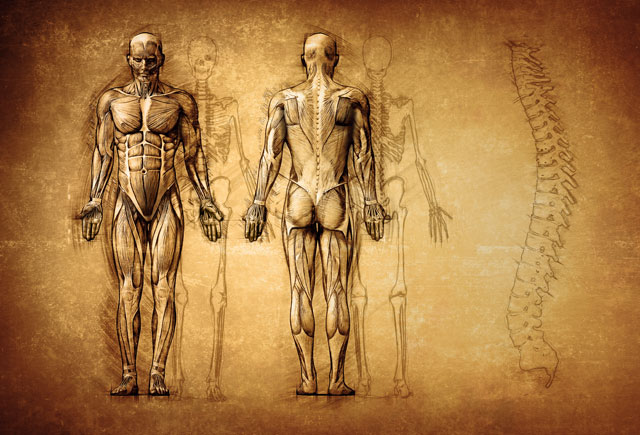Nursing assistants are the primary caregiver to patients in most health care facilities. They are the people that patients see several times a day and come to rely on to fulfill simple requests that they could once handle themselves such as going to the bathroom, getting cold water for drinking and getting a snack to eat. Nursing assistants also provide comfort and companionship and are sometimes the most human interaction a patient has on a regular basis.
Whether you are a NA taking care of post-operative patients in a hospital or tending to terminal patients in hospice care, you will provide not only physical necessities and comfort - you will also provide emotional stability and support. Make no mistake, the nursing assistant plays a demanding but extremely rewarding role on the Health Care Team.
Personal Communication
Patients, whether a young mother who has just given birth or an elderly gentlemen who is confined to a wheelchair, can feel a bit helpless when hospitalized. They often hesitate to communicate their needs accurately because they are intimidated. Their care is in the hands of medical professionals and they are in a vulnerable state, due to illness, general health or a recent change in their lives.
If a patient doesn't speak up, do not assume his or her needs have been met. Always, always ask such questions as, "Is there anything I can get for you? Perhaps some fresh water?" or "Is your television working okay? Would you like me to change the channel for you?" This will give your patient the opportunity to respond with any concerns or desires he or she might have.
Communication is a two-way street -- it is not only about talking, but also about listening. Patients can feel insignificant or unimportant when the nursing assistant breezes in several times a day, checks the vital signs and then breezes back out. Engaging in small talk and a few words of pleasant conversation are two easy things you can do to make your patients feel as though they matter.
Get to know the patients assigned to your care. There is no reason that visits to take vital signs, assist with bathing or other assignments can't also be opportunities to interact on a friendly level. If there are photos of children or grandchildren displayed in the room, ask about them occasionally. If there are extra visitors coming on a particular day, congratulate them.
Keep in mind, however, that there are strict guidelines to personal communication with patients. While talking with them in order to get to know a bit about them is definitely beneficial to their sense of worth, telling them intimate details of your life is inappropriate. These are patients in your care, not marriage counselors or siblings to confide in. You are there to help them, not the other way around. Above all, never talk about anyone else in the facility and never discuss other members of the Heath Care Team beyond their part in each patient's care. Any breach of confidentiality of this type will jeopardize your career and can lead your patient to fear that he or she might be the topic of gossip when you are with others.
Comfort measures
Comfort measures cover a broad range of functions that are, for the most part, common sense. As you go about your work each day, it is easy to take for granted the fact that you can walk, talk, move about freely and independently take care of your basic needs; this isn't the case for many patients, especially in a nursing home or hospice environment.
A good rule of thumb is to take the time to inquire about each patient's comfort and ask if there is anything they need each time you check their vital signs. A patient you dressed in the morning may be too warm by mid-day in the sweater you selected and may wish to change. Someone who is in a wheelchair may ask that the book they are reading be put within easy reach. As you get to know your patients, you should familiarize yourself with what makes them comfortable.
There are several things you should always be aware of in order to assure the comfort of your patients:
- Temperature tolerances. Some patients never feel warm enough. Remember to ask if they would like an additional blanket on cooler evenings. If they have a sweater, be sure to offer to help them into it or put it within reach so that they can easily don it when needed.
- Light tolerances. It is easy and quick to "throw open the blinds" every morning when you are waking patients for breakfast or their morning vital signs. Some patients find this alarming or upsetting. Think about it -- would you like this every day? Be gentle when rousing them, and ask if they would like the curtains open, the overhead light or a bedside light on. Waking up slowly with gentle light may set the tone for the entire day for some of your patients.
- Clothing preferences. Your patients are individuals who have lost a great deal of their individuality and freedom by moving to a health care facility. One of the most personal statements a person makes is with his or her appearance -- allow each patient who is capable to choose what he or she would like to wear each day. Although this may add an extra minute or two to the dressing routine, it will comfort them to be consulted about what they will wear that day. It will also encourage them to take pride in their appearance and hygiene.
- Food and Water. This sounds incredibly basic, but it can be forgotten when you have a busy schedule. Check to make sure all your patients have plenty of fresh ice water at all times. If they are permitted snacks (check with your charge nurse), see that these are available for them.
- Positioning. There is nothing more uncomfortable than being left to lie in bed in a position that puts pressure on your back or constricts movement of a leg or arm. Be attentive when you are placing someone in bed; ask him or her if they are comfortable and take the time to re-arrange them until they are situated in a position that they are happy with. Just because you usually place them facing a window doesn't mean that they want this every day -- ask.
Understanding Your Patients
Understanding each patient as an individual is essential to proper care giving. Nursing assistants must remember that although they are working with individuals who may be ill, recovering or elderly, they are patients second. Each person must first be seen as an individual. Part of this process is coming to terms with situations that many may find surprising or uncomfortable.
Gender & Sexuality
As a nursing assistant you are expected to treat patients with dignity and disregard gender differences because, as a professional, you are not looking at them in a sexual sense. Remember, however, that a new patient may not yet be comfortable with this and feel extremely modest or embarrassed as you perform tasks such as assisting with bathing or the use of a bedpan. Do not ignore their discomfort or make too much of it. Simply reassure them and make an effort to maintain their dignity (for instance, by shielding as much of their body as you can to increase their sense of modesty and comfort level).
Sexuality is an area that is problematic -- especially when working with geriatric patients. Society tells us that sexual expression is reserved for the young and healthy, but that isn't at all the case -- even those who are extremely advanced in age enjoy sexual activity, and those who are ill may find comfort in the closeness and affection of sharing a bed with a person dear to them.
Be aware of the rules and regulations of the facility you are working in regarding sexuality among patients, but focus on patients' rights. In general, unless there is a health risk or one party is mentally incapable of making the decision, sexual activity should not be restricted between two adults even in a nursing home environment so long as discretion and privacy is maintained.
If a patient suffers from Alzheimer's or Dementia, the situation becomes more complicated because of the loss of inhibition that is often exhibited in patients with these conditions. In a case like this, if a patient is exposing himself or masturbating in an inappropriate location -- in the common area, for instance -- he should be escorted back to his room rather than reprimanded in public. Humiliation does nothing to help the situation.
Cultural & Religious Differences
Do not assume that every patient you care for shares your particular beliefs. In many hospitals and other facilities, religious affiliation may be noted in patient records, which is a start. You should always respect the beliefs, or lack of belief, of each person you treat and not try to impose your own. At the holidays, if the facility decorates for Christmas, be sure to ask each patient before putting anything of a religious nature in their room -- a Jewish or Muslim patient may be offended by the presence of Christmas ornaments in their living quarters.
As much as possible, allow each patient to express his or her religious beliefs and practice them openly. If they have brought religious icons or decorations from home, allowing them to display them in their room will make them feel more secure and at ease.
Recognize holidays particular to their religion with a good wish when you see them, and be respectful of any special requests for changes in their routine or diet. Do not interrupt a patient's prayer or meditation for any reason unless it is an emergency. Schedule your rounds for vital signs, etc. around their usual worship practices.
Patients' Rights
One of the most important roles you will have as a nursing assistant is to be an advocate for the rights of each patient you care for. Whether they are in a short-term facility such as a hospital or in a long-term care environment such as a hospice or nursing home, every patient has certain rights that must not be denied. Understanding and upholding these rights is one of your most important duties.
Patient's Rights
-
- The right to be fully informed at time of admission and during the duration of stay concerning all treatments, conditions and possible outcomes at all times. This is only contra-indicated when the doctor determines it is not in the patient's best interest or they are no longer mentally capable of making sound self-determinations.
- The right to refuse treatment as allowed by law and to refuse medically experimental procedures at any time.
- To be discharged only for medical reasons, for his or her welfare or for the welfare of other patients or for non-payment of bills (there are Medicaid exceptions to this rule). To be given advance notice with sufficient time to make other arrangements for appropriate care.
- The right to encouragement, support and assistance for the duration of his or her stay along with the right to exercise his or her rights as a citizen. This includes the right to voice grievances, recommend changes and communicate any problems and/or possible solutions to outside representatives free from interference or fear of reprisal.
- The right to manage his or her financial affairs or, if he or she has given written consent to the facility to manage finances, the right to an accounting at least four times year of all transactions made on the patient's behalf.
- The right to be safe from physical or psychological abuse, including verbal abuse. Also the right to be free from artificial restraint through chemicals or physical restraints except where absolutely necessary to prevent injury and where authorized in writing by a doctor.
- The right to be secure in the knowledge that all personal and medical records are private along with the right to refuse release of any of this information to anyone outside the facility except in the case of transfer or if required by law.
- The right to personal dignity, respect and recognition of individuality, including the right to privacy and appropriate care of personal needs.
- The right to be free of expectation to perform services for the health facility that are not specifically therapeutic and part of his or her care plan.
- The right to private communication and interaction with individuals of his or her choice by telephone, mail or other means without censorship.
- The right to participate in social, community and religious groups of his or her choice unless medically contraindicated.
- The right to keep and use his or her own clothing and personal possessions as space allows unless medically contraindicated or unless it infringes on the rights of other patients.
- The right of married patients to enjoy private visits with his or her spouse and, if both patients are in the same facility (such as a nursing home), to share a room unless medically contraindicated.
- The right to daily visiting hours that are available at regular times to ensure social contact with family and friends.
- The right to consult with his or her own physician, social, legal or other representative during visiting hours without restraint and with privacy.






























